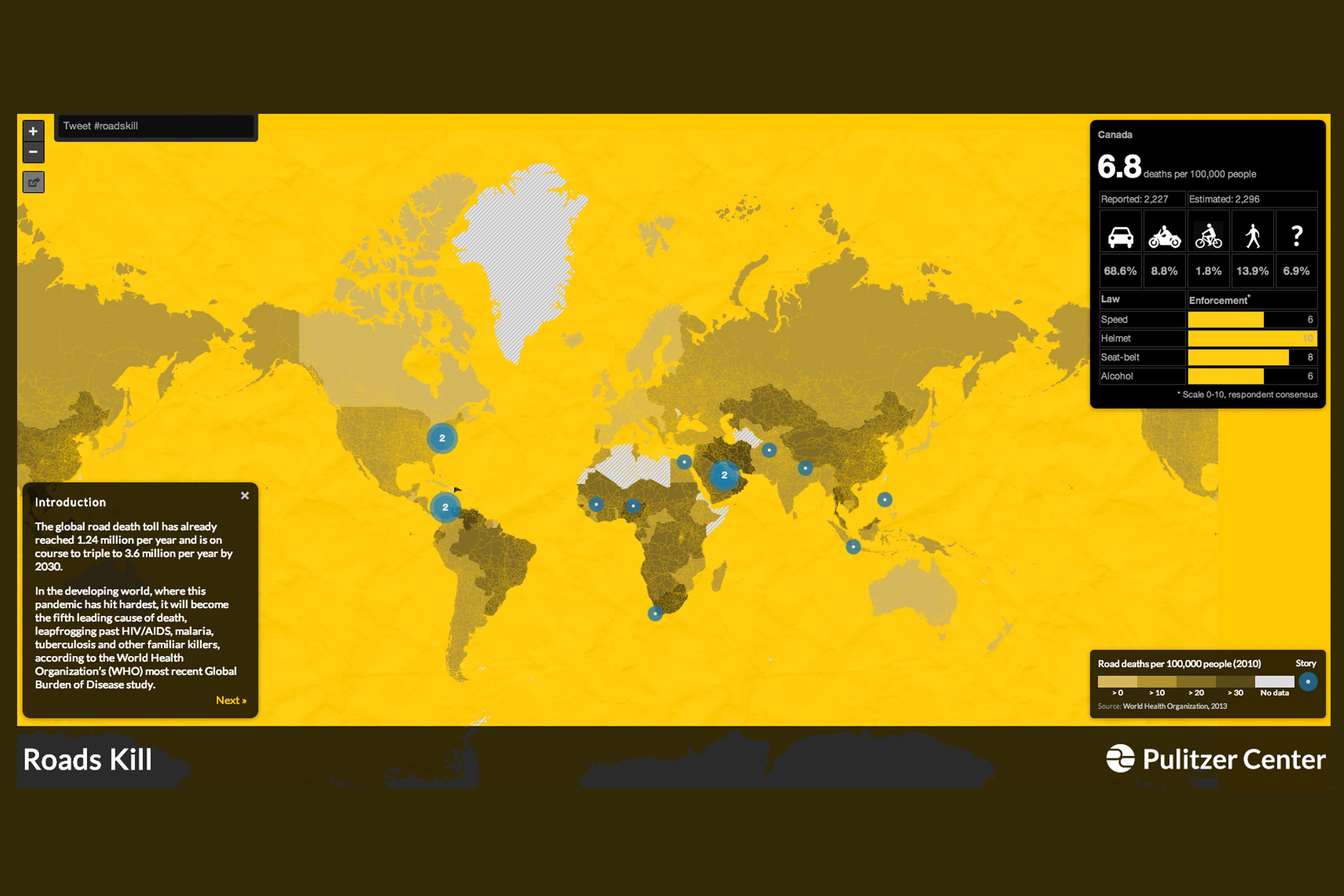THE DEADLIEST ROADS IN THE WORLD
More than 1.2 million people are killed on the world’s roads each year—and that number is increasing rapidly. If nothing is done to reverse this trend, the annual death toll is on course to triple by 2030.
The toll is highest in the developing world. Poor countries account for 50 percent of the world’s road traffic, but 90 percent of the traffic fatalities. Road accidents will soon become the fifth leading cause of death in these countries, leapfrogging past HIV/AIDS, malaria, tuberculosis and other familiar killers.
“Roads Kill” is a Pulitzer Center initiative that focuses on this neglected but easily “curable” public health crisis. The project, which made its debut last week in the print and online editions of The Washington Post, draws on our extensive global network of journalists to raise the visibility of this issue. The entire project, including an innovative interactive map and an ever-expanding roster of reports from around the world, is fully embeddable. We welcome others, including news organizations, to make use of these resources—and to contribute stories of their own.
A MILESTONE IN THE FIGHT AGAINST POLIO
This week, India marks three years without a single new case of polio. There will be public celebrations in cities around the country to highlight this notable achievement.
“People used to fret that India would be the last country to do it,” said Deepak Kapur, chairman of the Rotary International’s India National PolioPlus Committee, which spearheaded the anti-polio campaign. “Even the global experts felt that India may not be able to do it given the huge population, poor sanitation, impure drinking water, malnutrition and presence of disease. It made it the most fertile ground for the virus to breed in.”
But India proved the experts wrong. Pulitzer Center grantee Esha Chhabra, who is studying health issues in the region, interviewed Kapur for The New York Times India Ink blog about what it will take to keep India polio free.
A BRIDGE TOO FAR
Since the Gezi Park protests first erupted last year, Pulitzer Center grantee Jenna Krajeski has been documenting the increasingly heavy-handed—and apparently corrupt—rule of Prime Minster Recep Tayyip Erdoğan’s government.
In her latest dispatch, Jenna writes in The New Yorker about how the residents of a bucolic fishing community on the outskirts of Istanbul once welcomed the planned construction of a third bridge across the Bosporus, seeing it as a vital transportation link for the sprawling and congested city. But as revelations about corruption surrounding this and other massive public works projects creep ever closer to the Prime Minister’s office, many are having second thoughts.
